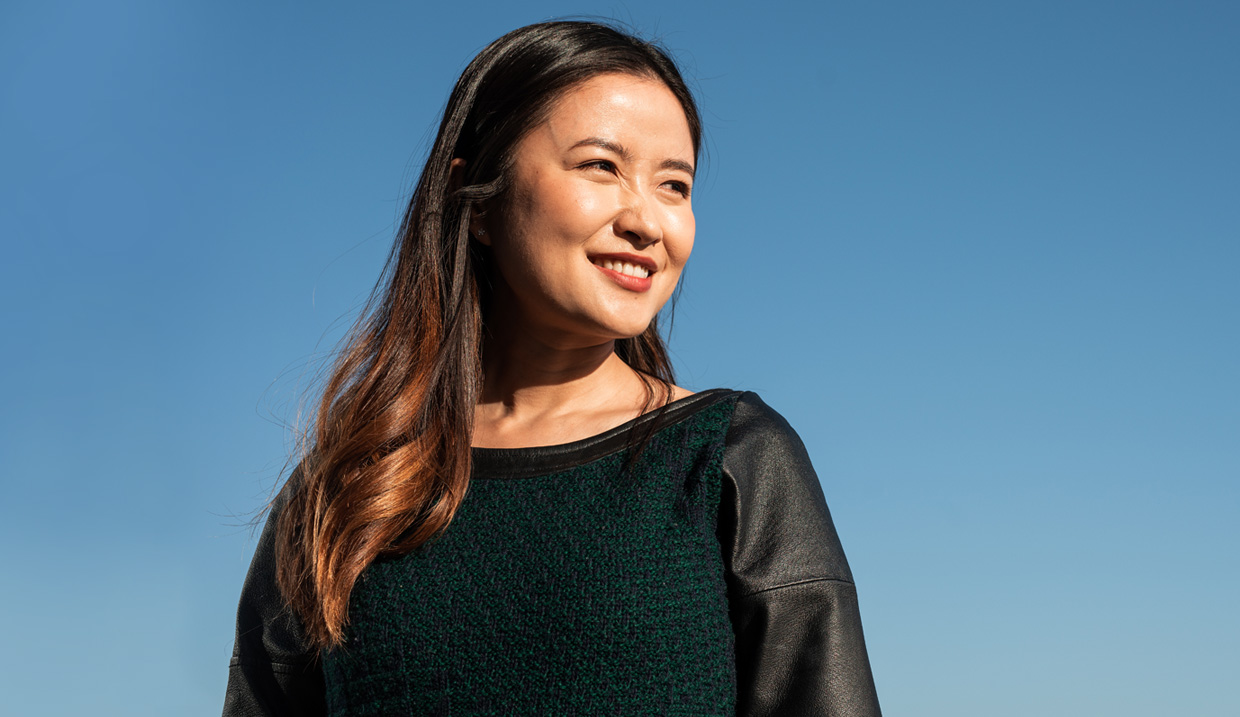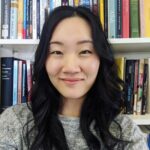In 2010, four thousand delegates from 198 countries gathered in Cape Town, South Africa, for the Lausanne Movement’s Third International Congress on World Evangelization. Called ‘the most representative gathering of Christian leaders in the 2000-year history of the Christian movement’ by Christianity Today, Cape Town 2010 was a formidable gathering of some of the most influential Christian leaders of the time.
But one unlikely speaker stood out from the rest: a young North Korean orphan, dressed in her high school uniform, who told the story of her family’s escape from the regime and the love of Christ that compelled her to return to her people someday.
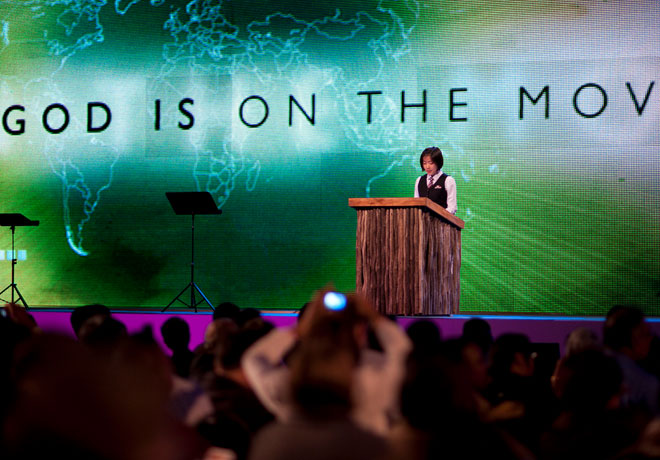
This young orphan is Gyeong Ju Son, now known as Sarah Chang. She had been brought to Cape Town as a last-minute speaker, and was utterly shocked at the size of the gathering—she had been expecting to speak at a small church. Not knowing English, she read aloud a translation of her testimony from the stage.
Little did she know how impactful her story would be, and how her life would be changed from that moment on.
Biola’s first-ever North Korean student
After receiving a standing ovation, her testimony soon went viral online, quickly becoming the most-watched video from the gathering. Barry Corey, a Cape Town 2010 participant and the president of Biola University in the United States, was so moved by her story that he offered her a full scholarship to the school.[1]
Sarah returned to South Korea after Cape Town 2010 for her final year of high school, excited for the prospect of studying in the US. It was then she met a woman named Miss Yoo, who became an unnie (older-sister figure) to Sarah while they attended Sarang Church together. It was through Miss Yoo that Sarah began to realize what it was she wanted to do with her life.
Sarah tells of how Miss Yoo owned and ran a major restaurant and had a desire to reach out to North Korean refugees living in South Korea. She did this by first inviting the refugees to come to a weekly prayer meeting. But they only came a few times then stopped, saying, ‘We have nothing to eat and hardly any means to survive. We don’t have time for prayer meetings.’
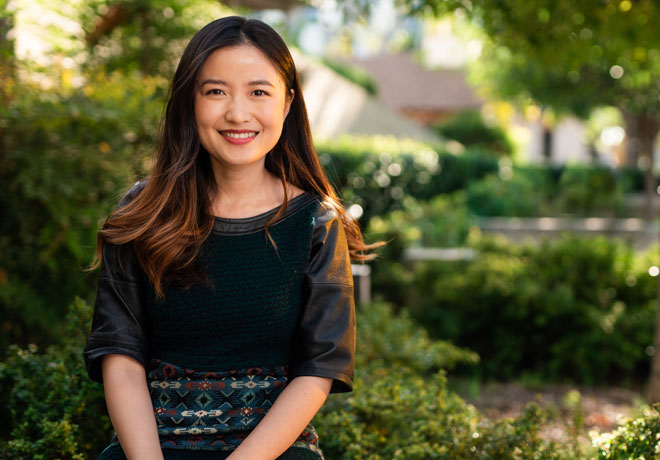
The tens of thousands of North Korean refugees[2] who find their way to South Korea face difficulties finding employment and integrating into an unfamiliar, often hostile country that is still technically at war with their own. The situation is not much better for the nearly 30,000 North Korean refugees in China, who face constant danger of deportation and where up to 90% of women refugees end up sold as slave-wives or into the sex trade.[3]
Miss Yoo realized that Christ’s love for these refugees needed to be spoken into their lives tangibly, practically. So she began a new venture: hiring and training them as her employees at the restaurant. Soon she saw how a steady income unlocked doors to other opportunities such as education, friendship, and integration into South Korean society. Most importantly, their hearts began to stir for God. They wondered, ‘Who is this God that these kind-hearted people serve? We want to know him too.’ To this day, she donates a large part of her profits to help North Koreans and continues to hire refugees who are having a hard time finding employment.
‘Before I met my unnie, I had thought only missionaries or pastors could do missions,’ says Sarah. ‘But through Miss Yoo, I realized you can also serve God’s kingdom through business—and sometimes, you can serve people and go places where missionaries and pastors cannot.’
When Sarah accepted Barry Corey’s offer and enrolled in the fall of 2014, she became Biola’s first-ever North Korean student. And she came into the school already knowing the path she must take to reach her people: business as mission.
Finding love across the border
During her time at Biola, Sarah has inspired countless students with her life story, including a music major named Paul Chang. Paul was born in the US but grew up in South Korea, even serving in the military there, which is mandatory for all South Korean men. ‘I had been trained to hate North Koreans,’ he says. ‘But I had never met one before.’
The first time he met Sarah on campus, he was struck by how ‘very fashionable’ she looked and how charming she was. Soon they began to talk, sometimes for hours. Paul found his preconceived notions of North Koreans replaced with awe for the hardships Sarah had lived through and the resilience and faith which she possessed. Her vision to bring the love of Christ to North Korea began to take hold in his own heart, as he began to see God through new eyes. ‘To me, God had always been just a faraway boss. To her, God was her father and mother, her parent. It was life-changing for me to understand he was also this for me.’
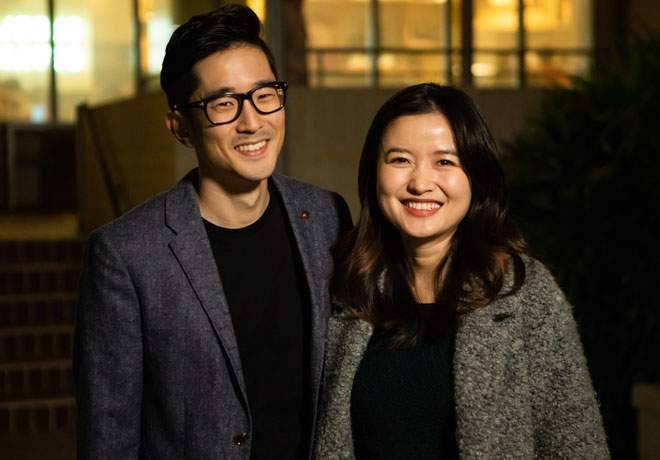
In March 2015, Paul proposed to Sarah on her birthday. Their marriage in 2016 is a glimpse of the profound reconciliation that is possible across the border and a promise to walk together toward North Korea.
The ‘best hope’ for the two Koreas
As Sarah prepares to graduate this year, she and Paul dream of starting their own cosmetics business within the next five years, reaching out in particular to refugees in Korea or China. ‘You don’t have to go to North Korea to reach North Korea,’ says Sarah, who became a Christian herself while she was living as a refugee in China.
They hope that their business and the relationships they build through it will enable them to share the gospel with North Koreans, offer the same kind of opportunities as Sarah has received, and be a source of hope to refugees everywhere. In addition, Sarah sees a key long-term outcome for ministry to North Korean refugees: ‘When unification happens someday, these refugees might be the best hope for bridging the two Koreas and bringing the gospel to the North.’[4]
In June 2019, Sarah and Paul will take the next steps toward realizing their vision by traveling to the Philippines for the Global Workplace Forum (GWF), the Lausanne Movement’s most concerted effort to date to address the issue of faith and work. Sarah was selected as one of 750 participants from a pool of over 4,000 nominees from around the world.
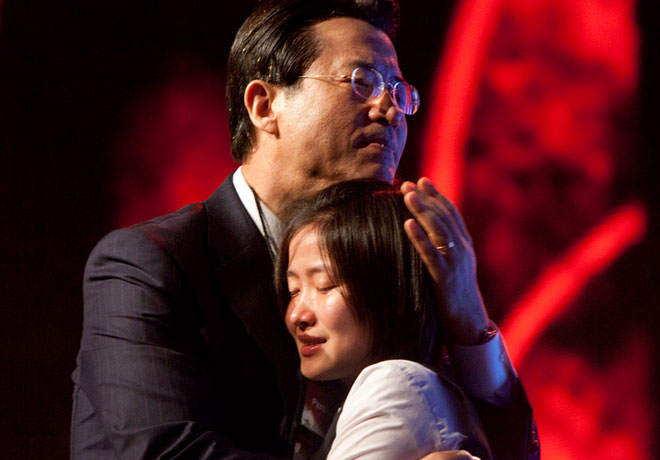
She looks forward in particular to connecting with leaders who have done business as mission for a long time. ‘I want to learn how they started, how they have brought together faith and work, and how they’ve done that for so long,’ says Sarah. ‘Even just being able to talk with people like this will be such an encouragement for me.’
Christians in North Korea continue to be among the most persecuted in the world. Sarah and Paul know that the journey they are embarking on is costly, the details unknown. But they are not afraid. God had once spoken these words to Sarah in a dream: ‘Walk with me . . . I am your heavenly Father, and whatever has [and will] happen to you is because I love you.’ As Sarah and Paul look Northward, the words of this promise go with them still, and into eternity.
Editor’s Note: Many GWF Participants like Sarah need financial help to make it to the Global Workplace Forum. Would you consider giving towards the GWF Scholarship Fund for Majority World participants?
Endnotes
- Barry Corey recounts this story in his book, Love Kindness: Discover the Power of a Forgotten Christian Virtue (Tyndale Momentum, 2016). ↑
- http://www.unikorea.go.kr/eng_unikorea/relations/statistics/defectors (accessed 24 Oct 2018) ↑
- Ed. Jason Mandryk. Pray for the World: A New Prayer Resource from Operation World. (Downer’s Grove: Operation World / IVP, 2015). ↑
- North Korean refugees living in the South have been called ‘the test lab for reunification’. https://www.washingtonpost.com/graphics/2018/world/a-new-generation-of-north-korean-defectors-is-thriving-in-seoul (accessed 24 Oct 2018) ↑
